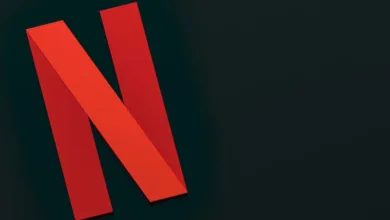Star Wars 2.0

The entrance to Google’s new Parisian headquarters is a non-descript door on a non-descript street. There is no sign, just a shabby printout saying “Are You Feeling Lucky?” Once the reception buzzes you in, a makeshift cardboard hallway leads you through a leafy courtyard of a sprawling hotel particulier.
Why all the mystery?, I ask my host. Turns out, even without the company name on the façade, random visitors still show up daily to complain about some search result, or try to modify their YouTube account. Unlike most modern companies, proudly shouting their name on any wall they can find, Google belongs to that super-star range of lucky players who do not need extra publicity. Yet their recent social media foray – Social Circle — just got an amazing PR boost, courtesy of their archrival, Facebook .
The full details of the story are yet to emerge, but we already know the remarkable fact that in May 2011 a public relations firm Burson-Marsteller contacted a number of bloggers, asking them to look into “Google’s sweeping violations of web privacy”. The irony here was that the firm in question was perhaps the worst choice for the job. Only a month before the scandal, a talk show host Rachel Maddow spoke of them on her MSNBC show: “Who’s Burson-Marsteller? When evil needs public relations, evil has Burson-Marsteller on speed-dial….When Blackwater killed those 17 Iraqi civilians in Baghdad, they called Burson-Marsteller. When there was a nuclear meltdown at Three-Mile Island, Babcock and Wilcox, who built that plant, called Burson-Marsteller. The Bhopal chemical disaster that killed thousands of people in India, Union Carbide called Burson-Marsteller. Romanian dictator, Nicolae Ceausescu — Burson-Marsteller. The government of Saudi Arabia, three days after 9/11 — Burson-Marsteller.”
Not surprisingly, one of the bloggers got suspicious, and wrote back: “Who is paying for this? (not paying me, but paying you)”. The firm refused to reveal the client, and the blogger went ahead and did what bloggers do: published the whole exchange online. It only took a few days for the “evil” client to emerge, and it was – surprise – Facebook. Clearly somebody didn’t watch MSNBC.. or did they? And why revert to such bizarre war strategy, when you have all the poking power on your hands?
Like no other area of technology, the evolution of Internet is driven by a Marshall McLuhan’s maxim : “If it works, it’s obsolete.” Even a market leader like Facebook or Google cannot stand still – they have to keep reinventing themselves, adding new modules and features to their services to entertain the ever-restless consumer. Like two spiders crawling on one giant web, hoping to get to that same poor fly, the two companies had to collide one day and the PR accident may be just the opening of the World Web War 2.0.
Like any war, the fight is for the territory – a virtual land, in this case, created by all of us digital peasants, planting our personal data left and right, hoping that something good will grow out of it. What will grow out is the crop of advertising revenues, which this year alone will reach $31 billion – thanks to Web’s increasing ability to personalize and contextualize the ad display, tailoring the ad to the consumer. The stakes are high, and it is no wonder that the two giants are coming after this promised land. While Google was clearly lucky in the first battle, I am certain that Facebook still has a few plug-ins up their sleeve.
Let us be smart, digital citizens, let us not get caught in the cross-fire. That Google question, by the way, comes from a Clint Eastwood line in Dirty Harry: “Do you feel lucky, punk? Well, do you?”






